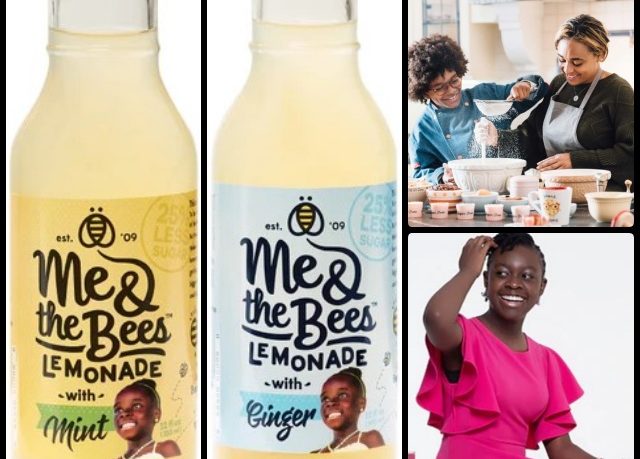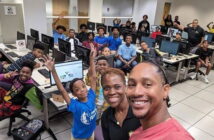By Tashi McQueen,
AFRO Political Writer,
tmcqueen@afro.com
Generational wealth is extremely important for the Black community. It could mean the difference between health, happiness and connections or poverty and strongholds.
“It’s a challenge sometimes when talking about creating wealth, especially for Black families, because it takes a lot of generations to get into wealth, but it takes one to lose it,” said Brittany Young of B360, a Baltimore-based nonprofit empowering children through science, technology, engineering and math (STEM) and dirtbikes. “As Black people in these spaces, we have to make sure we set our kids up for success, making sure that as we continue to grow, we are thinking not just about a quick dollar, but looking to five or six generations later. Making things easier when we talk about wealth management for Black families.”
As youth become increasingly tech-savvy and innovative, they’ve created long-term wealth for themselves as early as age five. It is important as ever that Black youth take advantage of this wave and know that it is never too early to turn their ideas into reality, potentially setting themselves up for years of success and helping elevate their family in the process.
“The gig economy is growing,” said Young. “A gig job could look like selling water, lemonade or doing YouTube. There’s a whole new world now with social media, where if you figure out the algorithm on platforms like TikTok youth can get paid to [create content].”
Some other ways kids can start working and saving money are: babysitting, dog walking, pet sitting, assisting in a barbershop or a braiding hair shop and shoveling snow.
For those kids and teens with an entrepreneurial mindset, seeking to secure longer-term wealth and bring their ideas to life, take a look at the following list of youth who found exceptional ways to do just that:
Gabby Goodwin is a hair care entrepreneur who broke into the
business at age five, after her own
struggle with hair barrettes. (Courtesy Photo)
Gabby Goodwin of Gabby Bows
Gabby Goodwin and her mom, Rozalynn Goodwin created anti-slip bows in 2014 to help ensure Black girls aren’t losing their barrettes and, now, Gabby also sells “Wash Day” hair products to make shampooing and conditioning less challenging for moms and daughters across the U.S., Canada and South Africa. Gabby became a six-figure entrepreneur with her business, Confidence by Gabby Goodwin, by the sixth grade.
Gabby also offers various mentorship services such as business coaching, hair tutorials and leadership training.
 Me and the Bees
Me and the Bees
Lemonade is the
genius of kid entrepreneur
Mikaila Ulmer. (Courtesy photo)
Mikaila Ulmer of Me and the Bees Lemonade
Mikaila Ulmer was just four years old when her interest in bees began, and her family encouraged her to submit projects to children’s business competitions. She used her family recipe for lemonade and her newfound understanding of what bees do for the ecosystem to include honey in the recipe, creating a delicious supply of lemonade. Mikaila’s lemonade is now sold in Whole Foods Markets, Kroger, Target and more venues across the U.S. They are also available for purchase online.
 Cory Nieves and his mother, Lisa Howard, love to whip up
Cory Nieves and his mother, Lisa Howard, love to whip up
gourmet cookies for their company, Mr. Cory’s Cookies. (Courtesy Photo)
Cory Nieves of Mr. Cory’s Cookies
Cory Nieves and his mother, Lisa Howard, started their gourmet cookie company when Cory was just six years old. Envisioning more for himself and his single mother, Cory hatched an idea to sell cookies in Englewood, N.J., his hometown, to raise funds for better transportation — a car.
With the help of Howard, he has been able to save for college and expand his business to hot chocolate and lemonade—though they are not currently available. Their cookies are available on Amazon and Walmart’s online market platform.
Joy Baltimore, a grassroots organization aimed at ending youth homelessness, is just one of the organizations out there helping encourage youth to build wealth and make their dreams a reality.
“We connect youth to various jobs and we give them training because we want to make sure all youth are well trained before the starting job,” said Lonnie Walker, owner of Joy Baltimore. “We don’t want youth to go get a job, get their first paycheck and quit. We want to give them the tools to be successful on the job or to start their own businesses.”
“We teach them how to write their own grants, to sell their ideas, get patents, licensing,” continued Walker. “They have to be consistent. They have to understand that they’re not going to make money overnight, and that’s the conversation we have with those [interested in]being an entrepreneur.”
Help us Continue to tell OUR Story and join the AFRO family as a member –subscribers are now members! Join here!



